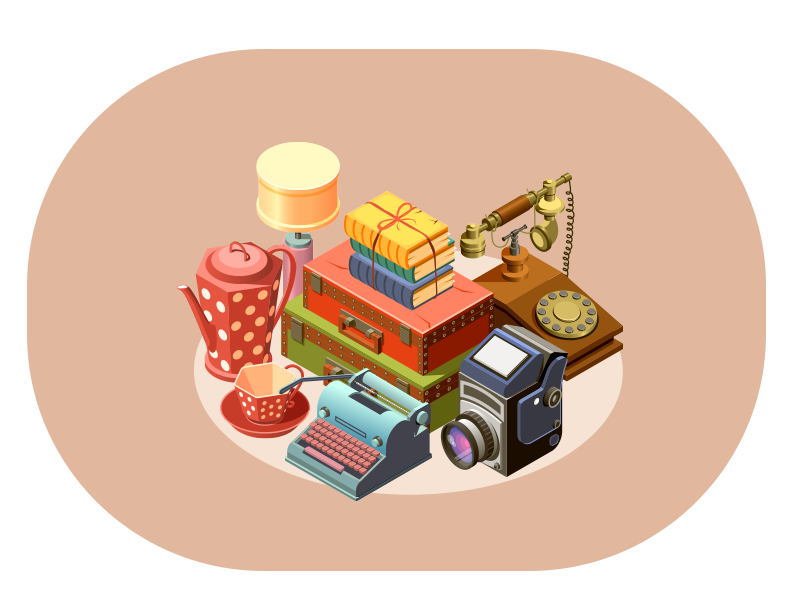Is Hoarding a Mental Illness?

Have you ever encountered someone who seems to be obsessed with saving worthless things when doing so makes no sense? We are not referring to people who fancy themselves to be collectors. We are referring to people who seemingly have no viable reason to be saving the things they are saving.
If you have encountered someone like this, it’s quite possible you have encountered someone who is suffering from a hoarding disorder. To be clear, this can be a devastating disorder if left untreated. It’s a disorder that can cause significant problems in all aspects of the hoarder’s life.
All of this raises two important questions: “Is hoarding a mental illness?” – “Why do people hoard?”
Items People May Hoard

Before getting into the details related to hoarding disorder, knowing about the items people may hoard might help you be able to identify a hoarder. Being able to identify a hoarder is often the first step toward understanding why do people hoard.
As a side note, hoarders tend to save or hoard a lot of one or two things as opposed to general saving or hoarding. Also, the things they tend to hoard are typically old and or “trashy” stuff.
Here is a partial list of the items people might hoard: empty cans and bottles, old newspapers/magazines, old clothes, canned goods, toilet paper, broken appliances, and yes, even pets.
Diagnosing Hoarding Disorder
Before help for hoarders can be provided, it’s necessary to identify them. That involves going so far as to get a formal hoarding disorder diagnosis.
Let’s start by answering the question, “Is hoarding a mental illness?” For the answer, let’s go to the American Psychiatric Association, which classifies hoarding disorder as an obsessive-compulsive disorder (OCD). As we all know far too well, such disorders are considered part of the spectrum of mental illnesses.
Let’s investigate further.
Causes
Unfortunately, researchers have not yet been able to identify the proximate causes of hoarding. While it seems clear that trauma often plays a role in the development of hoarding disorder, it’s difficult to discern how much of a role it plays.
While finding direct causes has been difficult, researchers have found that there are certain mental processing deficits that tend to point out evidence of hoarding disorder. These traits include
- Problem-solving difficulties
- Difficulty concentrating
- Lack of planning and organizational skills
- Memory lapses
Note: When considering the notion is hoarding a mental illness, it’s in this mental processing deficit area that the evidence says “yes.”
Risk factors
The term “risk factors” points to the characteristics that might make someone prone to falling prey to hoarding disorder. The three most prominent risk factors are:
- Personality issues – This would largely focus on the mental processing deficits that were mentioned above.
- Trauma or stress – People tend to resort to unexplained harmful behaviors after encountering life-changing events such as death or loss of a loved one, mental/emotional/physical abuse, or loss due to natural disasters (fire, flood, tornado, etc.)
- Family history – Many hoarders have been previously exposed to hoarding by family members or close friends.
Complications

The term “complications” refers to the ways that hoarding disorder can adversely affect the hoarder’s life. Thoughts of possible collateral damage come to mind. Here’s a partial list of possible hoarding complications:
- Conflicts among family members
- Creation of health hazards from pests and air-bourne debris
- Threat of legal issues such as eviction or damage lawsuits
- Injury caused by tripping over clutter or falling items
- Creation of a fire hazard
- Isolation due to feelings of guilt
- Issues at work or school
Other mental health disorders
While hoarding disorder can appear as a stand-alone mental illness, it can also serve as a co-occurring disorder with other mental illnesses. Some of the other prominent mental health issues that can exist with hoarding disorder include Attention-deficit/hyperactivity disorder (ADHD), anxiety, depression, and other obsessive-compulsive disorder issues.
Prevention

Without being able to identify direct causes, it’s nearly impossible to employ methods of hoarding disorder prevention. The best thing one can hope for is early detection of the disorder, which opens the door to early treatment and the lessening of possible complications.
As far as treating hoarding disorder, there are a couple of ways help can be rendered.
What you can do if you suspect someone is hoarding
The best way you can help a hoarder is to point out the possibility they might have a hoarding problem. At the same time, you might want to consider talking to a mental health treatment professional. They should be able to help you guide the individual towards the therapy they will need.
How hoarding disorders are treated
Mental health treatment professionals use two primary methods of treating hoarders. The least invasive method is Cognitive Behavioral Therapy. This is a treatment process that involves teaching the patient how their negative thoughts create the need to hoard and how those negative thoughts can be converted to positive thoughts.
Prescribing antidepressant medications is the other method.
Why Choose Clutter Trucker

At Clutter Trucker, our employees are well-versed in how hoarding affects the lives of hoarders. Our contribution to helping hoarders is making ourselves available to clean up the messes and clutter that are created by hoarding.
How Our Service Works

Our decluttering service requires four (4) steps:
- Step 1: You contact us and request our decluttering service
- Step 2: We arrive at your location, assess the situation, and give you a free quote
- Step 3: You give the thumbs up and we go to work removing the clutter and cleaning all affected areas.
- Step 4: We give you an invoice that represents affordable and competitive prices
Clutter Trucker is ready to serve you when the need arises. You can schedule an appointment online or give us a call.
Give us a call for a quote and to schedule an appointment

About Jennifer Hanzlick
Clutter Trucker is a Denver-based hoarding clean-out company founded by Jennifer Hanzlick. Jennifer leveraged 15 years of corporate experience in to start the company in 2008. Her mission is to help and educate individuals and their loved ones who have hoarding disorder. A featured speaker at Ted X Boulder, Jennifer works directly with community and non-profit organizations to boost public awareness about the condition. To that end, she founded the Colorado Hoarding Task Force in 2015.
 720-982-7856
720-982-7856



